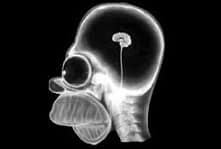Before proceeding to establish the meaning of the term inoperative, let's discover its etymological origin. In this case, it must be emphasized that it comes from Latin, exactly from the word "inoperantis", which can be translated as "he who does not act" and which is the result of the sum of several lexical components of said language:
-The prefix “in-”, which means “no” or “without”.
-The verb “operari”, which is synonymous with “to work”.
-The suffix “-nte-”, which is used to indicate “agent” or “the one who performs the action.”
The adjective inoperative is used to describe someone who is not operant : that is, who does not operate . In this framework, we are interested in the meaning of the verb operate as carrying out a task, executing an action or working .
 Whoever is ineffective, therefore, does not carry out a task that should be carried out. The inoperative person can also carry out the operation but incorrectly.
Whoever is ineffective, therefore, does not carry out a task that should be carried out. The inoperative person can also carry out the operation but incorrectly.
For example: “The president is ineffective since he has not managed to solve any of the problems that have plagued the country for years,” “The electrician who came to work at my house is ineffective: as soon as he left, he cut the power again. light” , “The company's commercial manager is ineffective” .
Among the many synonyms that the word inoperative has, we can highlight some such as useless, sterile, fruitless, useless, ineffective, null, vain and even unproductive. On the contrary, among its antonyms we find terms such as useful, productive, effective, active or fruitful.
The notion is generally associated with someone who works poorly . Take the case of the Minister of Security of a country. If, during his administration, crime increased by 40% nationwide, journalists will surely describe him as ineffective.
The concept can also be applied to a team or an organization . In the field of sport , it is common for a team that had a poor performance in a match to be named as ineffective: “An ineffective Club San Mateo fell without mitigating circumstances against Deportivo Sol,” “The national team was ineffective without its captain.” , “The championship leader thrashed a totally ineffective visiting team” .
In the field of Law we also have to explain that the term in question is used. Thus, for example, we usually talk about so-called inoperative grievances. These take place when each and every one of the considerations that appear included and established in a sentence are not combated.
An entity that does not function as it should can be defined as inoperative: “Due to the limitations we suffer from the new legislation, our NGO has become inoperative,” “The Consumer Defense Office is inoperative, it never manages to resolve complaints in favor of the user.” ” .
Within the field of literature we find different works that use the term we are addressing in their titles. This would be the case, for example, of “The inoperative community.” This is a book written by Jean-Luc Nancy and published in 2000 that revolves around the history of the world and, above all, the role of Nazism.
